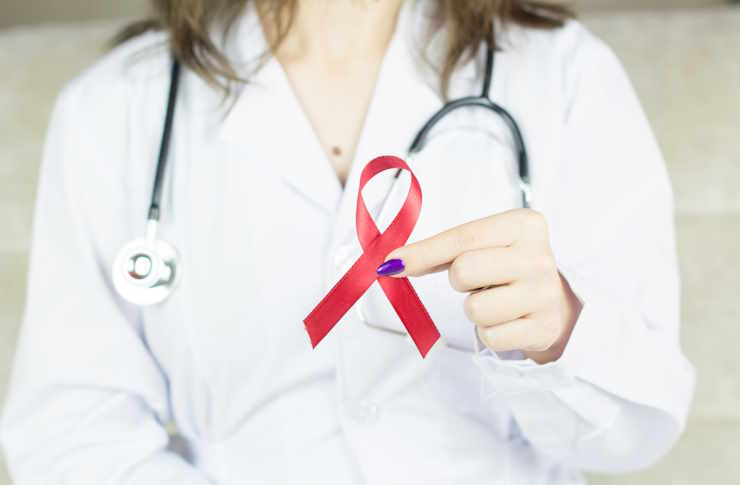The Latest Breakthroughs in Depression Treatment You Should Know About
Mental health treatment has evolved dramatically in recent years, with innovative therapies and technologies offering new hope for millions affected by depression. From cutting-edge brain stimulation techniques to personalized medication approaches, the landscape of depression care continues to expand with evidence-based solutions that address the complex nature of this condition.

Depression affects over 280 million people worldwide, making it one of the most prevalent mental health conditions. As our understanding of the brain and mental health deepens, researchers and clinicians are developing increasingly sophisticated approaches to treatment that go far beyond traditional talk therapy and standard medications.
What Makes Depression Treatment 2025 Different from Previous Years
The current era of depression treatment is characterized by precision medicine approaches that recognize depression as a highly individualized condition. Advanced genetic testing now helps clinicians predict which medications are most likely to work for specific patients, reducing the trial-and-error period that has historically frustrated both patients and providers. Biomarker research has identified specific brain patterns and blood markers that can guide treatment decisions, while artificial intelligence assists in analyzing patient data to recommend optimal therapeutic combinations.
Digital therapeutics have also emerged as validated treatment options, with FDA-approved apps and virtual reality programs showing measurable results in clinical trials. These tools complement traditional therapy by providing 24/7 support and interactive interventions that patients can access from home.
Understanding Depression Treatment Costs in Today’s Healthcare Market
The financial aspect of depression treatment varies significantly based on location, insurance coverage, and treatment type. Traditional psychotherapy sessions typically range from $100 to $300 per session without insurance, while psychiatric consultations can cost between $200 to $500 for initial evaluations. Medication costs depend heavily on whether generic alternatives are available, with newer antidepressants potentially costing $200 to $600 monthly without insurance coverage.
Innovative treatments like transcranial magnetic stimulation (TMS) can range from $6,000 to $12,000 for a full course, while ketamine therapy sessions may cost $300 to $800 per treatment. Many insurance plans now cover these evidence-based treatments, though prior authorization requirements and coverage limitations vary significantly between providers.
Depression Treatment Comparison Across Different Therapeutic Approaches
Modern depression treatment encompasses a spectrum of evidence-based interventions, each with distinct mechanisms and applications. Cognitive-behavioral therapy (CBT) remains the gold standard for psychotherapy, with extensive research supporting its effectiveness for mild to moderate depression. Acceptance and commitment therapy (ACT) has gained recognition for its focus on psychological flexibility and values-based living.
Pharmacological treatments have expanded beyond traditional SSRIs and SNRIs to include novel mechanisms like NMDA receptor antagonists and psychedelic-assisted therapies. Brain stimulation techniques, including TMS and electroconvulsive therapy (ECT), offer options for treatment-resistant cases.
| Treatment Type | Provider Examples | Cost Estimation | Key Features |
|---|---|---|---|
| Traditional Therapy | BetterHelp, Talkspace, Local Clinics | $60-300 per session | Convenient access, various specialties |
| Psychiatric Medication | CVS, Walgreens, GoodRx | $10-600 monthly | Generic and brand options available |
| TMS Therapy | NeuroStar, BrainsWay Centers | $6,000-12,000 full course | Non-invasive, FDA-approved |
| Ketamine Treatment | Mindbloom, Field Trip Health | $300-800 per session | Rapid-acting, supervised administration |
| Digital Therapeutics | Headspace Health, Ginger | $15-70 monthly | 24/7 availability, app-based support |
Prices, rates, or cost estimates mentioned in this article are based on the latest available information but may change over time. Independent research is advised before making financial decisions.
Depression Treatment Prices and Insurance Coverage Considerations
Navigating the financial landscape of depression treatment requires understanding both direct costs and insurance benefits. Most major insurance plans cover mental health services under parity laws, meaning mental health benefits must be comparable to medical benefits. However, deductibles, copayments, and network restrictions significantly impact out-of-pocket expenses.
High-deductible health plans may require patients to pay full treatment costs until meeting their deductible, potentially creating barriers to early intervention. Community mental health centers and sliding-scale fee providers offer alternatives for uninsured or underinsured individuals, with costs sometimes as low as $20 to $50 per session based on income.
Employee assistance programs (EAPs) frequently provide free short-term counseling, while telehealth platforms have introduced subscription models that can reduce per-session costs for frequent users.
Emerging Technologies and Future Directions in Depression Care
The integration of technology into depression treatment continues to accelerate, with virtual reality exposure therapy showing promise for depression with comorbid anxiety disorders. Smartphone-based ecological momentary assessments allow real-time mood tracking and intervention delivery, while machine learning algorithms analyze speech patterns and digital biomarkers to predict depressive episodes before they fully manifest.
Psychedelic-assisted therapy, including psilocybin and MDMA treatments, represents perhaps the most significant breakthrough in depression treatment in decades. These therapies, conducted under strict medical supervision, have shown remarkable results in clinical trials for treatment-resistant depression, with some patients experiencing sustained improvement after just a few sessions.
Personalized medicine approaches are becoming more sophisticated, with pharmacogenomic testing helping clinicians select optimal medications based on individual genetic profiles. This precision approach reduces adverse effects and improves treatment outcomes while potentially reducing long-term healthcare costs.
The landscape of depression treatment in 2025 offers unprecedented hope and options for individuals struggling with this challenging condition. From traditional evidence-based therapies to cutting-edge technological innovations, the field continues to evolve toward more effective, accessible, and personalized care. As research progresses and new treatments receive regulatory approval, the future holds promise for even more targeted and successful interventions that can transform lives and restore hope for millions affected by depression.
This article is for informational purposes only and should not be considered medical advice. Please consult a qualified healthcare professional for personalized guidance and treatment.




